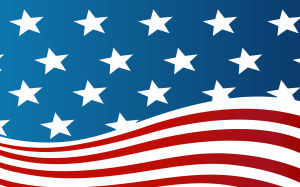Obama signs Patriot Act Extension
May 26, 2011
All quotations appearing in this article are attributed directly to an interview conducted by the Associated Press.
On May 26, moments before the midnight deadline President Barrack Obama signed a four-year extension of the provisions of the Patriot Act.
President Obama granted the approval from France where he is attending the G-8 summit. By using a machine located in the United States, which holds a pen that signs the president’s actual signature. This is only used through authorization by the president.
“I think it is an important tool for us to continue dealing with an ongoing terrorist threat,” said Obama.
The provisions of the Patriot Act that were extended include the government’s power to search business records, conduct roving wiretaps and conduct surveillance of “lone wolves” – which are non- United States citizens who are terrorists but may not linked to terrorist groups.
The many opinions about the provisions of the Patriot Act and why it should not be extended stems from the infringement upon the people’s privacy rights. That is why some of the provisions of the act have to be periodically be renewed.
“The Patriot Act has been used improperly again and again by law enforcement to invade Americans’ privacy and violate their constitutional rights,” said Laura W. Murphy, director of the American Civil Liberties Union Washington legislative office. Murphy’s assertion was one of the concerns raised in the Senate debate over the extension of the provisions in the Patriot Act. Intelligence officials are reported as having denied the improper use of the provisions.
The Obama administration said without the three provisions of the Patriot Act, the Federal Bureau of Investigation may not be able to locate terrorists activities in the United States.
The nation reportedly has a divided opinion on the provisions of the Patriot Act. In a Pew Research Center poll conducted last February, before Osama bin Laden had been killed, 34 percent responded saying the act “goes too far and poses a threat to civil liberties.” 42 percent considered it “a necessary tool that helps the government find terrorists.”
This is seen as a slight turnaround from the 2006 poll with 39 percent saying it is “a necessary tool that helps the government find terrorists” and the 38 percent saying it “goes too far and poses a threat to civil liberties.”



